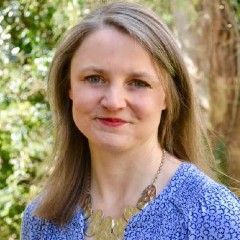You are not currently logged in. Please create an account or log in to view the full course.
Multilingualism, Literacy and Books
- About
- Transcript
- Cite
Chaucer: Historical, Literary and Cultural Context
In this course, Professor Marion Turner (University of Oxford) explores the historical, literary and cultural context for Chaucer’s Canterbury Tales. In the first module, we think about the literary and linguistic culture of 14th-century England, focusing in particular on the languages that people read and spoke, and what each language was most commonly used for. In the second module, we think about the kind of books Chaucer read – in Latin, English, French and Italian. In the third module, we think about everyday life in Chaucer’s England – what did people eat and drink? what did they wear? what kinds of things did they have in their homes? – before turning in the fourth module to consider the extent to which Chaucer’s works reflect a historical reality. In the fifth module, we think about the role of religion and the church in 14th-century England, before turning in the sixth module to the role of the king, parliament and government – and Chaucer’s own role in relation to each of these.
Multilingualism, Literacy and Books
In this module, we think about the literary culture of the 14th-century England, focusing in particular on: (i) the fact that England was a multilingual country where most people would have known more than one language; (ii) the different uses of different languages, e.g. English as a vernacular language, Latin as the language for education and the church, etc.; (iii) bilingual literature, e.g. ‘Summer is icumen in’ (Harley MS 978); (iv) annotations in a different language than the original text, e.g. English glosses of a Latin text; (v) the level of literacy in 14th-century England; (vi) the development of different kinds of texts in 14th-century England; and (vii) the production of books in this period and the kinds of books that were produced.
Cite this Lecture
APA style
Turner, M. (2020, April 04). Chaucer: Historical, Literary and Cultural Context - Multilingualism, Literacy and Books [Video]. MASSOLIT. https://massolit.io/courses/chaucer-historical-literary-and-cultural-context/religion-cceb70aa-fc1f-4da6-9e6c-456278a563d9
MLA style
Turner, M. "Chaucer: Historical, Literary and Cultural Context – Multilingualism, Literacy and Books." MASSOLIT, uploaded by MASSOLIT, 04 Apr 2020, https://massolit.io/courses/chaucer-historical-literary-and-cultural-context/religion-cceb70aa-fc1f-4da6-9e6c-456278a563d9

